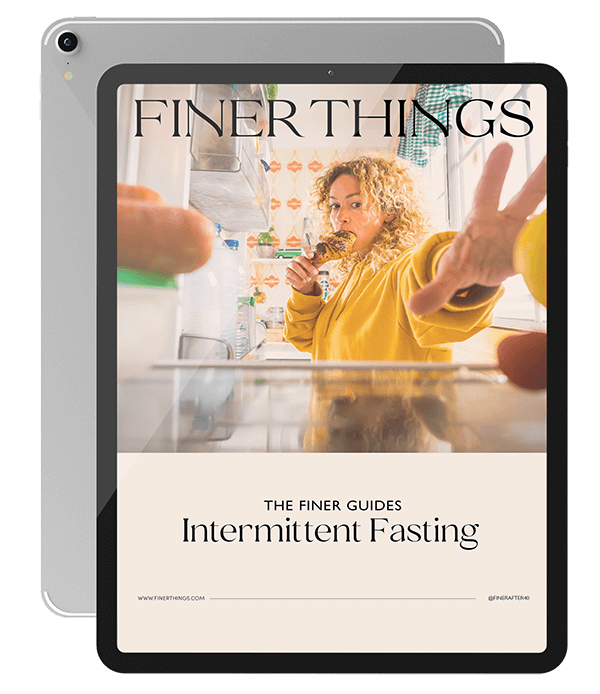“My Son Got Married and Dumped Me!”

By Franki Hanke
Enter the fiancee. You go from essential to sidelined. Your relationship with your son after marriage can be different from before. There’s a shift in priorities.
Sometimes these changes start prior to marriage, but usually, marriage is a restructuring point for many priorities and boundaries, which can be uncomfortable.
Instead of desperately seeking to return to the before, focus on creating a new relationship with your son that is positive for everyone involved.
Why did it change?
Parent-child relationships change over time.
Before you beat yourself up, tension between parents and adult children is common.
“The parent-child relationship is one of the most long-lasting and emotionally intense social ties. Although often positive and supportive, this tie also includes feelings of irritation, tension, and ambivalence,” said researcher Kira Birditt of the University of Michigan.
Across bodies of psychological and sociological research, there’s a wide range of common tension points.
- Unsolicited Advice
- Frequency of Contact
- Personality Differences
- Child Rearing
- Past Relationship Strain
- Personal Conflict Related to Jobs, Finances, Housekeeping, Lifestyle, or Health
A marriage can be a trigger for a variety of these common conflicts. Marriage is typically bookended by life events where it’s common to share advice, but advice on its own can be irritating, and even solicited advice can be revealing of personal differences that can affect your relationship.
Additionally, in a parent-child relationship, parents generally feel more emotionally invested than their adult children. So, if you’re having a hard time while you’re son seems unphased, don’t take it personally. It’s not reflective of his love for you, but merely a difference in your perspectives.
So, if this marriage feels like the crumple point of a previously strong relationship, it may be related to the marriage itself, but likely the marriage was just a catalyst to differences that would have arisen in another context too.

Perception differs from person to person.
When Ohio State University researched asked 1,000 estranged mothers why their adult children cut contact, almost 80% blamed a third party. However, more often, children note parents themselves as the reason for overstepping boundaries or over-criticizing.
So, if this rift feels severe, be honest with yourself if there’s any root in how you communicate. It stings our self-esteem to consider blaming ourselves, but often times communication mistakes are learned behaviors we must work to change. Have grace for yourself if you feel you’re the root. Recognize similar situations where you’d be in your son’s shoes; see his perspective and evaluate your actions from that mindset.
Some common reasons for cutting or limiting contact with a parent are…
- Failure to emphasize (especially about childhood or parenting choices)
- Lack of support for identity disclosures
- Differences in core beliefs including religion and politics
- Overstepping of boundaries in how or when communication happens
- Narcissist behavior or unhealthy communication habits
As you continue forward, prime yourself to accept your son’s own perspective on your interactions. He may be acting to protect his own mental health or his new relationship’s well-being, but that doesn’t mean he’s acting to hurt you.
What should I do?
Remember, your relationship with your son is a two-way street, and, your role as his mother does not make it unique compared to any healthy relationship. Relationships require respect for boundaries on both sides and consistent expectations for each other.
Many issues with adult children and their family members come down to mismatched expectations that irritate unspoken boundaries.
Reflect On Yourself
Before you complain to your son, identify some helpful details about what is bothering you. You’re feeling “dumped,” but that’s not specific enough to fix.
- What habits or interactions make you feel connected to your son?
It’s easy to find the negative. We’re attracted to the novelty of bad things, but it’s helpful to identify what you’re seeking in the relationship when you enter a conversation.
Common responses may be a recurring phone call, being informed of important information, shared traditions, visits home, etc. This is an opportunity to recognize what’s a big deal to you.
- What recently has triggered these negative feelings, specifically?
Oftentimes, when we feel slighted, we ignore the root cause, so our complaints aren’t useful to the recipient. Specifically noting what you’re unhappy with is a chance to consider these complaints too. Are they fair to your son? Are they respectful of his independence and autonomy as an individual adult?
- Are you treating this relationship like one between two adults?
While you’ll always be his mother, your son is an adult. He’s an autonomous individual. He no longer relies on you the same way he did as a child, and he shouldn’t. An adult parent-child relationship must accept that. Pat yourself on the back for a kid who can handle themselves!
- Have you done anything recently that wasn’t respectful to your son or his new spouse?
If you’re noticing a change in how your son interacts, it may be because of something you did, even if you didn’t mean any harm. Don’t stew, but think back to recent interactions. If you can identify a misstep, opening your conversation with an apology can help in him opening up.
Change Your Mindset
Before you talk to your son, it’s helpful to start adjusting your own perspective behind the scenes.
Choose “Now” Over “Used To”
It’s hard. Time flies between a 15-year-old son in high school with a new girlfriend and adulthood with a wife! But, relationships have to adjust to reflect people as they are.
Your son is no longer a new human facing every situation for the first time with you as their sole resource. He’s an adult. He has a full-time job that demands his time. He has a wide social network to support him. The situation of his life has changed drastically, so it makes sense that where his life overlaps with yours will change too.
Traditions will change. Priorities will change. Your “rank” in your son’s life will change. Focus on your relationship now not on what used to be or happen.
The Science Behind the Advice: Gayle Kaufman and Peter Uhlenberg in the Journal of Marriage and Family note that each life stage change in a child’s life changes their relationship: “Expectations about communication, support, shared activities, and the expression of closeness are reevaluated in light of new circumstances.” If you don’t reevaluate your own expectations, you’ll find conflict with your son’s updated ones.

Be a Peer
You’ve always been his mother. When a kid is, well, a kid there’s a clear hierarchy of power and balance of responsibilities. But adult children aren’t kids anymore. You’re both adults who have equal power and responsibility over themselves.
Don’t assume your typical role. Be a peer.
That means you have to stop trying to parent. “It’s not about not caring; it’s a matter of it’s not your business,” said Donna McArdle psychotherapist as quoted by Sheila Wayman for Irish Times. Be a resource, when asked, but avoid defaulting back to parent mode. Let him dictate his own life.
The Science Behind the Advice: The fancy terminology for this concept is “filial maturity” which is an adult child’s perception of their parent as an individual with a past and limitations. In research on parent-child relationships into adulthood, a higher perception of their parent as a peer increased the quality of relationships.
Talk
Once you’re thought about your own perspective, it’s time to get his. Be mindful of the business of newlywed life, but open a line of communication. Identify something concrete to open the door, either something you think might have been the trigger for this chance (of your own doing) or some concrete you’re missing in the current relationship.
Get The Finer Life
Our Sunday email has tips and content you will love – exclusively for our subscribers.
"*" indicates required fields
Be prepared for compromise. In fact, present a compromise in your initial reach-out, if it fits.
“I’ve been thinking back on last week, and I realize that my comments may not have communicated what I intended. I apologize. I’d love to talk about it. Are you free for 15 minutes this week?”
“I missed our weekly call last night and feel disconnected. I know you’re busy though, and I won’t talk your ear off! Are you free for 15 minutes this week to catch up? I’ll set a strict timer!”
“I missed wishing you a happy birthday in person, but I’m realizing why you’d want to create a new tradition with your spouse. Are you free to tell me about how you spent the day?”
As you open the lines of communication, be intentional.
Avoid judgment because you don’t see their whole life. When you make a misstep, address it head-on and apologize. Create an environment where your son will call you out when he doesn’t like something rather than cut you out. That’s how you avoid being truly dumped.
What does that look like?
We all tend to make conversational habits. Like all habits, sometimes they aren’t the healthiest option. So, for example, reacting to bad news with manipulative jokes.
You might say…
“You’re not coming home for Christmas again? I didn’t see the kids last year either, but I guess my grandkids don’t need to know grandma!”
“Is this really my son? I can’t remember the last time you called me!”
But, even in a lighthearted tone, these kinds of comments aren’t effective. They don’t say what you really mean, they don’t present a compromise, and they don’t communicate respect for the choices your son made.
Compare those to…
“You’re not coming home for Christmas? How are you spending it? It will be weird to not celebrate with you here, and I want to give gifts to the grandkids. Could I Facetime for gift opening sometime on Christmas Day or could we do a visit over New Year’s?”
“It’s really good to hear your voice. I missed talking to you. What’s been happening?”
When you respond, create space for your son to provide context. It’s very rare he’s making decisions with the intent to hurt you. So, listen for the real reasons. Understand them when they can’t be solved, and create compromises when you can find mutual solutions.
Find Mutuality
Follow me for a little exercise. Do you have friends with no mutual connection like a shared hobby, similar lifestyle habits, or shared personal beliefs? Probably not, because those elements are how we create bonds with specific people.
Find overlap that can be a base for your relationship other than your family ties. Identifying these can open new avenues to communicate outside of your existing parent-child script. When something feels shared, it can be easier to make the give/take of a relationship more equal (and avoids unsolicited advice and constant parenting).
For example:
-If you both enjoy cooking, share recipes. Ask for advice from your son about how to improve your recipe, solve an issue in the kitchen, or on new kitchen purchases.
-If you both enjoy a sport, meet up to play together or attend events together. Avoid becoming a coach though.
-If you both read, catch up on some books your son already read and ask questions or read something new mutually.
If you struggle to find these overlaps, consider trying things your son is involved in. You may find something new you enjoy and create a new connection with your child. Start small: a podcast they like or a social media site they use. Make the effort to teach yourself how to get involved and then connect about it. Don’t put the labor of connection on them.
Connect with their Spouse
As you do all this mental work to re-frame how you interact with your son, don’t forget the importance of their significant other.
If that person is in your son’s life, it’s easiest if they’re in your life too. You don’t need to go from mother-in-law to best friend, but you should forge some individual connection and mutual respect. Respect the boundaries a new spouse initiates out of respect for your son and their choice of spouse. Accept, too, that the first years of marriage may be especially focused inward on their new relationship. Resist the jealousy and panic in your chest. New romance often puts blinders on for family and close friends alike, ride out the honeymoon phase with patience and acceptance.
Note: the assumption of this article is that your son is safe. In the case of domestic violence, please reference How to Help Your Loved One in an Abusive Relationship. Avoid rash action. Identify red flags and get the next steps in that article.
“Am I going to be second fiddle for the rest of my life?”
Long story short: maybe. Romantic relationships often take priority for people in America. The counterpoint is, does it matter? If you’re connected to your son, witnessing him build a happy life, does it matter if you’re not the first place on the imaginary leaderboard?
If it does matter to you, I’d suggest a dialogue with a therapist. You might be bringing some heavy baggage to this relationship that’s not about the new spouse but about yourself. It might be time to start a healing process now before heartbreak happens later.
Relationship advice is always easier said than done. Good luck with this mental work, and remember, it’s hard! You won’t start now and see changes the next day. Don’t shy away from fessing up when you don’t act like you’d like. Get comfortable with uncomfortable. At the end of the day, the effort is worth it for a real connection with someone you love.
The above content may contain affiliate links. When you click and shop, we receive a small commission to support our writers.

Want a Free Guide?
You will receive our free 19-page guide and access to our exclusive content, private invitations, and tips you’ll love.
"*" indicates required fields
Facebook Group



